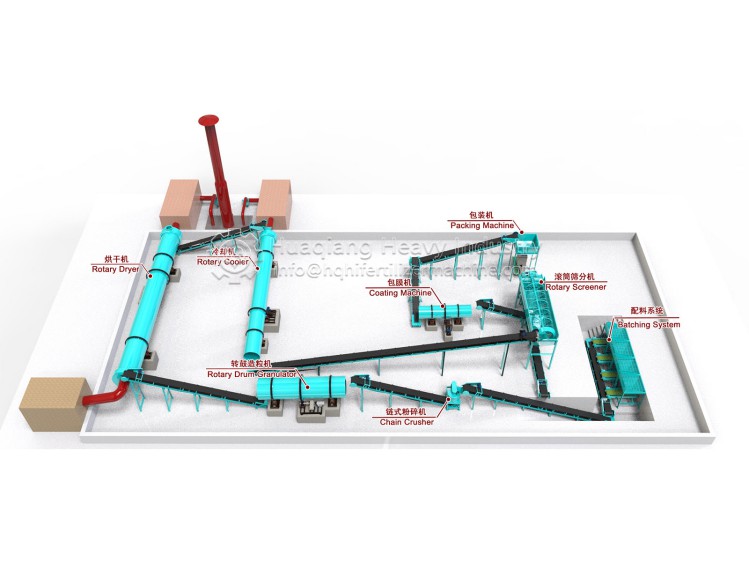The word environmental protection has been deeply rooted in people’s hearts and has become a common concept in People’s Daily life and work. With the advent of the era of green environmental protection economy, many manufacturers are also paying more and more attention to the quality of organic fertilizer equipment, and the industry market is also biased to the production of new, environmentally friendly value-added products. Nowadays, people’s environmental awareness is gradually increasing, organic fertilizer production line is the top priority in the recycling industry, its environmental protection is also more and more people’s attention, and the market share is also expanding. In the face of a huge potential consumer group, the industry believes that organic fertilizer production equipment manufacturers need to break the mindset, re-position the market for their own products, cope with market changes, grasp the characteristics of consumer demand, truly seize market opportunities, and win business opportunities.
The organic matrix and carrier in the production of bio organic fertilizer in the organic fertilizer production line can also be selected according to local conditions. In areas where the soil is hardened due to the long-term application of chemical fertilizer, peat soil (peat soil), pond mud, river mud, garbage sludge, poultry manure, shale, coal gangue, coal ash, agricultural and sideline products waste, etc. rich in organic matter can be selected as the matrix. After high-temperature sterilization, microbial agents, deodorants, promoters, stabilizers, synergists, etc. can be added. The formula is formulated according to scientific principles. After fermentation and multiplication, it can be dried to make powder or granular fertilizer. Microbial fertilizer strain agent is made of dry and high-temperature resistant spore producing fungi, which can be stored for a long time. In addition to organic matter and microorganisms, a small amount of quick acting fertilizer and trace elements can be added according to different soil fertility conditions. For example, a small amount of quick acting nitrogen fertilizer should be added in nitrogen deficient areas, and corresponding trace elements should be added in zinc and molybdenum deficient areas. A small amount of inorganic fertilizer added with biological fertilizer has formed organic and inorganic complex due to the fermentation with organic fertilizer source and microorganism, and will not cause fertilizer residue. This biological fertilizer is not only suitable for general farmland fertilization, but also suitable for “green food” production.